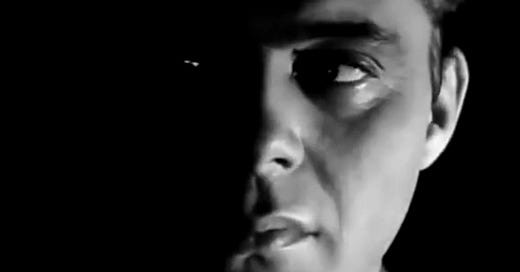In the movies, of course, it all works out, this genre of older actresses and young men.
In Love Has Many Faces, for instance, Lana Turner marries one beach gigolo, has an affair with another… with the small trouble of a murdered beachboy washing up on the Alcapulco shore (whom Lana also shared some deeply meaningful moments with. The body was found with an inscribed bracelet: “Love is Thin Ice.” You can see where this is going).
Lana as the older woman (at 44!) is all golden and movie-starish, a cognac sniffer ever dissolutely swirling in hand, radiant in overlit 1960s Technicolor that makes even tropical Alcapulco look like a contrived studio set. She is depicted in many scenes as being drunk, not overly so, just enough to sway a bit and be movie-dialogue frank. There are slapped faces, of course, as well as Edith Head’s regal take on beachwear befitting Miss Turner. With gravel-voiced Ruth Roman and baritone Virginia Grey along for some change-of-life laughs, everybody has a helluva good time and a weepy epiphany in this magnificent collision between The Roman Spring of Mrs. Stone and Where the Boys Are.
As far as the romance scammers go, a lot of “worldly” faux-philosophical chat is put in the mouth of these half-naked beachboys, but it is Hugh O’Brian as an affable blackmailer — see him now… long tan torso in tight yellow swim trunks — who turns out to be really the good time that was had by all.
“You know something, Hank,” enraged Lana tells him, “You’re ninety percent man… and ten percent rat!” To which Hugh tannly replies: “Any time you want the ninety percent, just reach.”
Yes, it all works out… in the movies. But not the way we want.
There is, however, one British noir that really delivers. In Cast a Dark Shadow, the romance scammer is a dashing Dirk Bogarde, and he, to our great delight, goes out the hard way … fleeing in a car in which (we love the movies!) he somehow forgot he disabled the brakes and so goes flying, roaring, rushing over a cliff.
Let’s linger on the lessons taught in this film.
First of all, there is the lovely elderly woman, who has married this gregarious layabout for “love,” that is, his looks. He tucks her in, fills her glass, makes her laugh. But our benign lady has not looked close enough at the changing moods of his face.
Dirk Bogarde packs a lot of meaning into a raised eyebrow. He uses it, not as most actors would, to show surprise or skepticism but to convey low cunning. The eyebrow rises as a vague smirk plays across his lips. A wonderful tic that betrays the manipulating mind behind the smooth face.
The wife announces she’s going to change her will tomorrow.
Um, no. Never do that!
That night, “Teddy Bare,” as she calls Dirk, keeps refilling her tumbler, gets her sleepy and drunk, drags her over to the gas heater, scatters the matches on the floor, and turns the gas on. ( A gas heater! It’s little mid-century touches like that warm the heart!) Only to learn at the inquest, where accidental death is ruled, that the new will was going to leave all her money to him. Instead, the former will now takes effect, and all the money goes to her sister.
Teddy does get the grand house, which sits on several trim English acres. But no money to maintain it. So handsome loverboy and his arched eyebrow go on the market again.
This time he meets his match in a sharp, shapely widow (also loaded) who’s been around the block a few times, sees right through that eyebrow tell… and thinks, he looks fun.
She invites him to her table. We are in a charmingly antique Britain where couples in tearooms dance in mid-afternoon, to plunky pianos and matronly all-woman bands.
“Poor Albert, buried him 6 months ago,” she says. She’s making small talk. Dirk can’t afford to show his cards, not yet. He affects concern: “What was the matter with him?” “He was dead!” she exclaims and lets out a rat-ta-tat laugh. Dirk remains cautious, serious about what he’s about. His reply is choice Rotter. “I had a recent bereavement myself,” he says in a brave tone. “My wife… very sudden.”
And so we’re off to the races. They marry, of course. She’s a former barkeep, very tough, very jolly, now quite well off. One day he picks her up at the hairdresser’s. “I was going to go blonde, but I thought it might make me look common.” Um, right.
Our Dirk soon wants to move into a separate bedroom (that physique magazine he’s reading when they meet seems more than an idle prop.) She tartly puts pretty boy in his place. “Look, I don’t know what your arrangement was with your last wife, but I didn’t marry you for companionship.”
He gives her a smile and pretends it’s no big deal, but soon that eyebrow goes off again. Something very British and on-the-hustle about it. The smug superiority of a low-class con man. I can outplay you…which he does and which, so satisfyingly, leads to his own flying leap into crash, bang, boom.
The rotter!









A madcap read. Loved it.